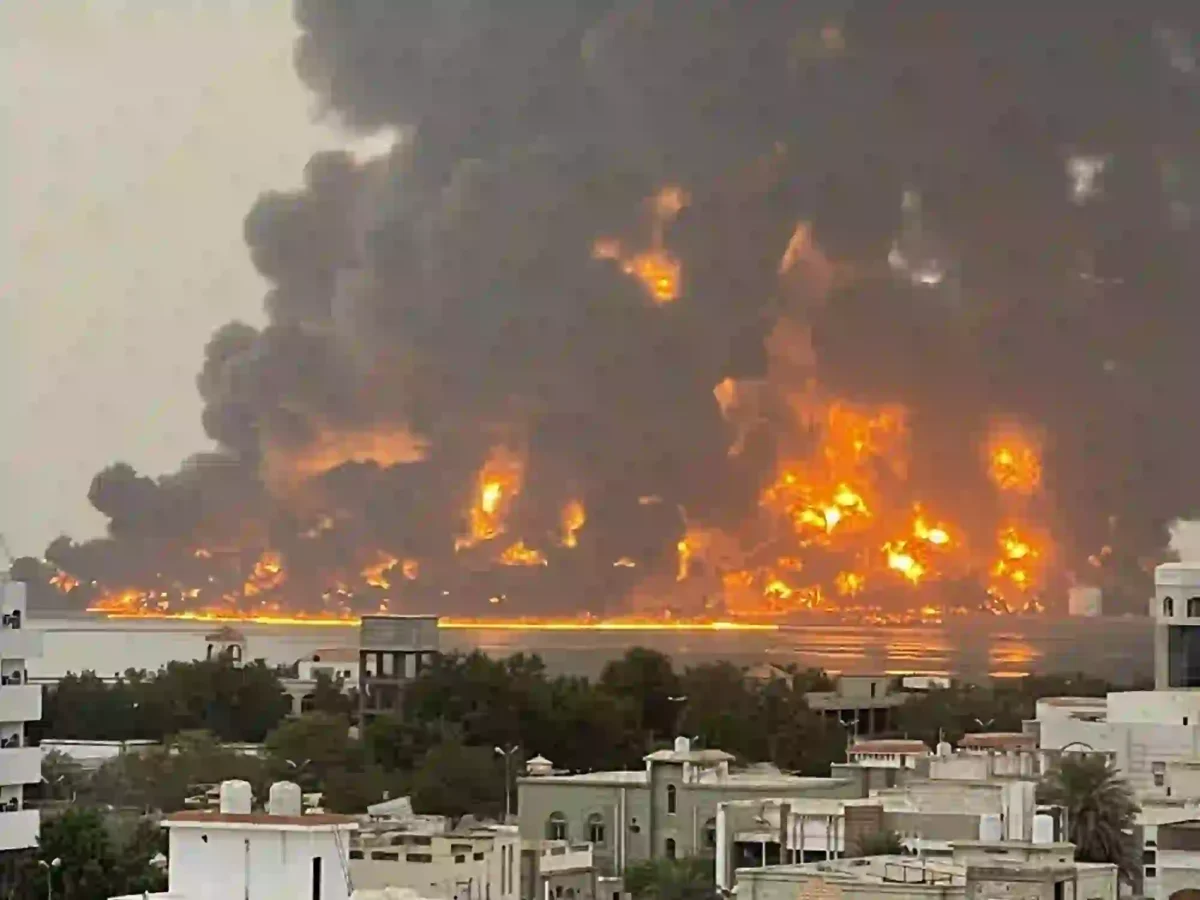For the first time, Israel has struck Yemen, following a drone strike on Tel Aviv launched by the Houthis. Since the start of the Israel-Hamas war in October 2023, the Houthis have been attacking Israel and shipping in the Red Sea in solidarity with Hamas, a terrorist group.
On July 19, the Houthis launched a deadly drone in Tel Aviv, Israel. The Houthis launched a long-range Iranian-made drone that killed one man and injured four others in Tel Aviv. Israel’s strike on Yemen was in response to the Houthi drone attack on Tel Aviv.
Yemen Goes Up In Flames
Israel’s response came just 36 hours later, after the drone strike by the Houthis. Approximately 25 F-15 and F-35 aircraft, accompanied by refueling planes, flew 2000+ kilometers towards Yemen. The strike was carried out in eight waves. In the attack, Israeli jets attacked the port of Hodeidah, among other targets, destroying fuel depots, and power stations and inflicting significant damage on the port. The Israeli PM and IDF chief were seen at the command center.
The Houthi-run AI Masirah TV said the strikes targeted an oil port on Yemen’s west coast. The Israeli response killed at least six people and injured others. After Israel attacked Hodeidah, the oil port was engulfed in huge flames of fire. The fire is still burning and will continue for several more days. Following the attack, the entire region witnessed a power outage.
On the strike on the oil port of Hodeidah, Israel Defense Minister Yoav Gallant said, “I have just left the IAF command Center, where I met with the Prime Minister, IDF chief of the General Staff, and the Air Force Commander, and closely monitored the strike conducted by IAF aircraft on the Hodeidah Port, 2000 kilometers from the state of Israel.
He also said, “The fire is currently burning in Hodeidah, is seen across the Middle East, and the significance is clear. The Houthis attacked us over 200 times. The first time they harmed an Israeli citizen, we struck them. And we will do this in any place where it may be required. The blood of Israeli citizens has a price. This has been made clear in Lebanon, in Gaza, in Yemen, and other places – if they will dare to attack us, the result will be identical.”
Why Did Israel Choose The Oil Port And Other Targets?
In discussions about approving targets, Israel decided to hit two points at the port of Al-Hudaydah and nearby. The first target was energy infrastructure, where around 20 fuel storage tanks were attacked. Most fuel tanks were within the complex, and the Houthis placed others near the port. The oil port has suffered huge damage following the Israeli strike.
The second target was the port’s cargo unloading capabilities, where Israel struck cranes and lifted used to unload goods from ships to dock. Security officials estimate that the port’s ability to receive goods has been completely disabled. This means that Iran won’t be able to transfer weapons to the Houthis by sea in the near future.
Like the Houthis, the Hezbollah of Lebanon also receives weapons supplies from Iran. Strucking Yemen’s port was a message that Israel could strike the ports of Lebanon and also strike as far as Tehran, Iran. The distance between Tehran and Israel is 1600 kilometers, while the distance between Israel and AI-Hudadah, Yemen, is 2000+ kilometers.
Israel Sends A Clear Message To Their Enemies
After the attack by the Houthis on Tel Aviv, Israel knew that all their enemies were watching closely. So Israel had to act in such a way that it sent a message to Hezbollah, Houthis, Iran, and all of its proxies. By striking Yemen, Israel sent a strong message to its enemies.
A senior security official said, “After the drone hit Tel Aviv, we realized that the entire region is watching us – including Nasrallah in Beirut and Khamenei in Tehran, and we needed to project power throughout the region, even at the cost of continued escalations. If we did nothing, there would have been a price to pay, as others would have gotten ideas.
To strike Yemen, Israeli jets had to fly 2000+ kilometers. The distance from Israel to Tehran, Iran, is approximately 1,610 kilometers. Lebanon is a neighbor of Israel. With strikes on Yemen, Israel sent a clear message to Iran, and its proxies that have been attacking Israel since the war erupted in October 2023. Like Hamas, the Houthis of Yemen and Hezbollah of Lebanon are Iran’s proxies. Iran is the one that supplies weapons to these terrorist groups.

